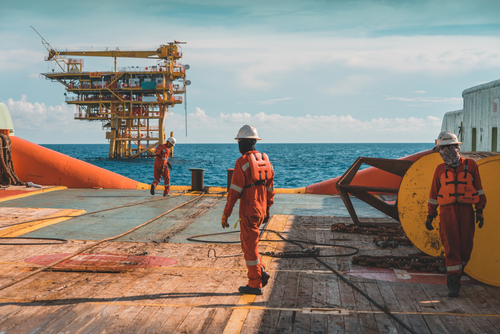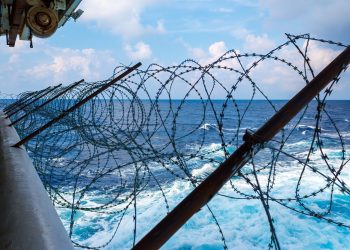Commenting on the recent findings of the Inmarsat-sponsored Thetius drafted report ‘A Fair Future for Seafarers?’, HRAS says that there is a clear need for a more coordinated approach to supporting seafarers where resources are pooled into a single body.
According to the report, the COVID-19 pandemic proved that the MLC is not enforceable, with 2020 showing that “the collective ineffectiveness of the entire shipping industry, including charities, corporates, unions and even international bodies such as the IMO to act as a voice for the needs of seafarers during a crisis.”
Moreover, there are issues such as fatigue, bullying, abuse, criminalisation, abandonment and piracy which, like pandemics, are likely to continue in the future. The report also states that, as a profession, seafaring should not have to rely on the work of charities to function effectively. Rather, these welfare organisations should aim to make themselves redundant by ensuring that seafarers no longer require their services except in exceptional circumstances.
By representing the entire sector’s views on the international stage, coordinating lobbying for long term funding, and enabling better advocacy activity, a single body that is made up of representatives of the whole welfare sector will be far more effective at creating change than any one welfare charity could be
HRAS has considered this proposed view and notably, has previously promoted a similar idea as early as September 2015.
At that time, there was another ongoing maritime crisis, as after being arrested in India in 2013, six UK security guards onboard the MV Seaman Guard Ohio were due to stand trial.
After protracted legal engagement, an Indian appeals court finally acquitted the 35 crewmembers and security guards in November 2017.
Many organisations provided welfare support alongside then UK Foreign and Commonwealth Office (FCO) background interventions, but even with the weight of national and international opinion supporting them, including European Parliament intervention, the men suffered years of unnecessary incarceration and inhumane treatment in Chennai prison.
At that time, HRAS CEO David Hammond called for unity of effort:
A coordinated approach is urgently needed across the maritime welfare community, as isolated responses and duplication of effort assists nobody. A fragmented approach ultimately affects those very persons who the welfare service providers aim to assist by diluting their individual efforts. Strength is in depth and as such any opportunity for unity should be embraced without exception
The Thetius report further promotes the key role that telecommunications will play in supporting seafarers as the industry moves towards smaller crews, less shore leave and greater automation of tasks at sea.
It also calls on welfare organisations to consider how they will use digital tools to support seafarers remotely at sea and at the same time calls on them to be more proactive in their support of families ashore.
Furthermore, HRAS supports the continued need for greater recognition of the importance of families and communities and has worked towards that goal with the release of family impact statements in cases where seafarers have gone missing or been murdered.




























































